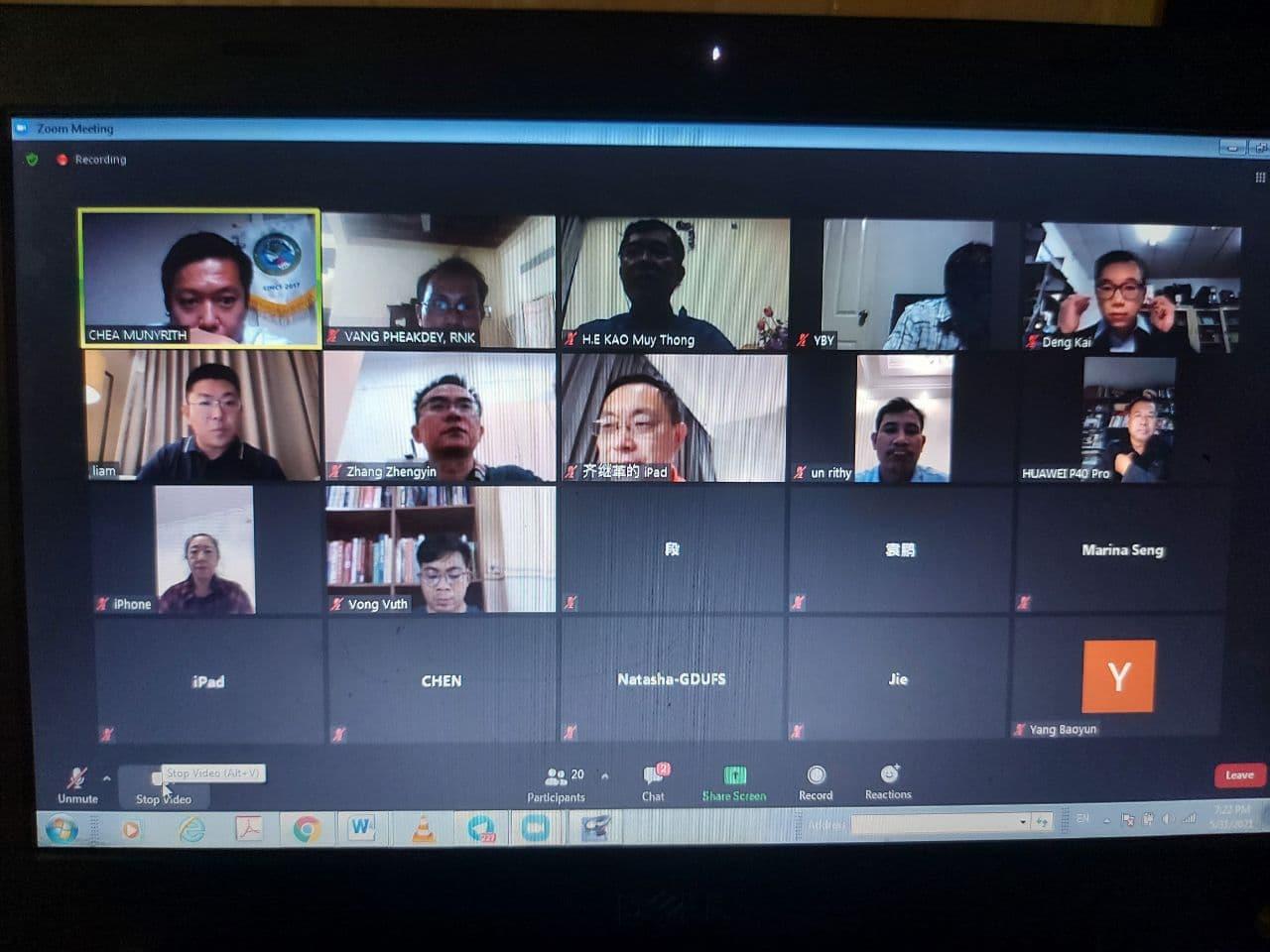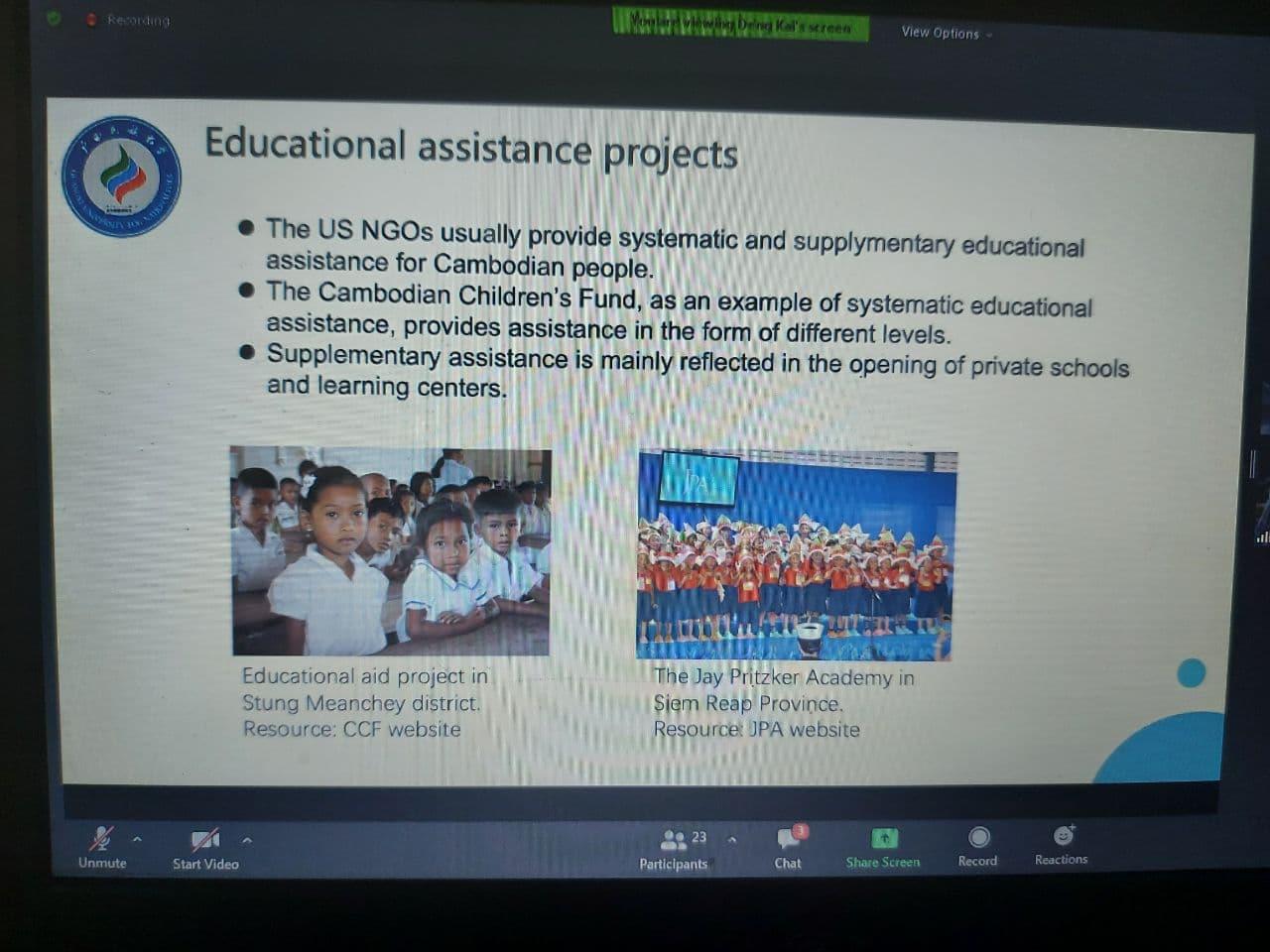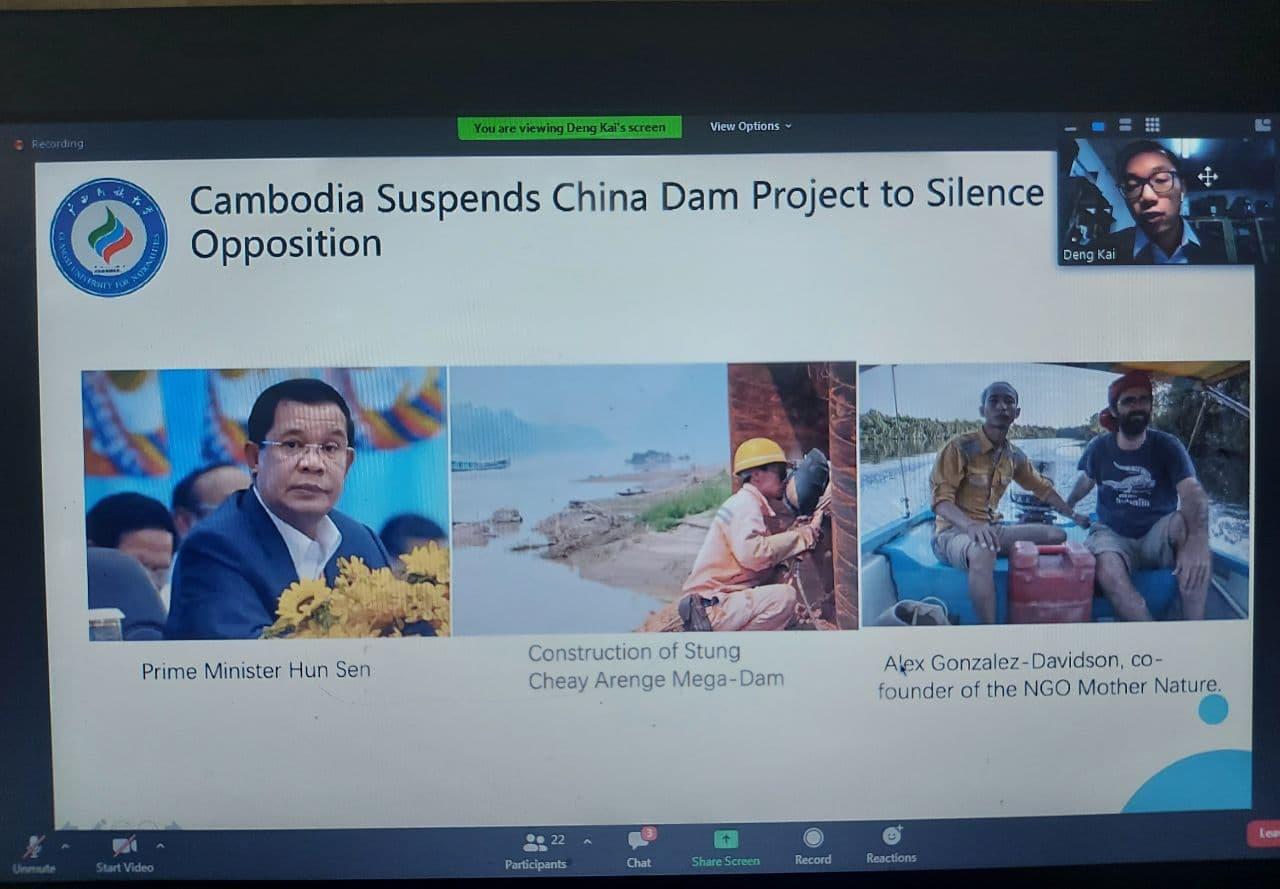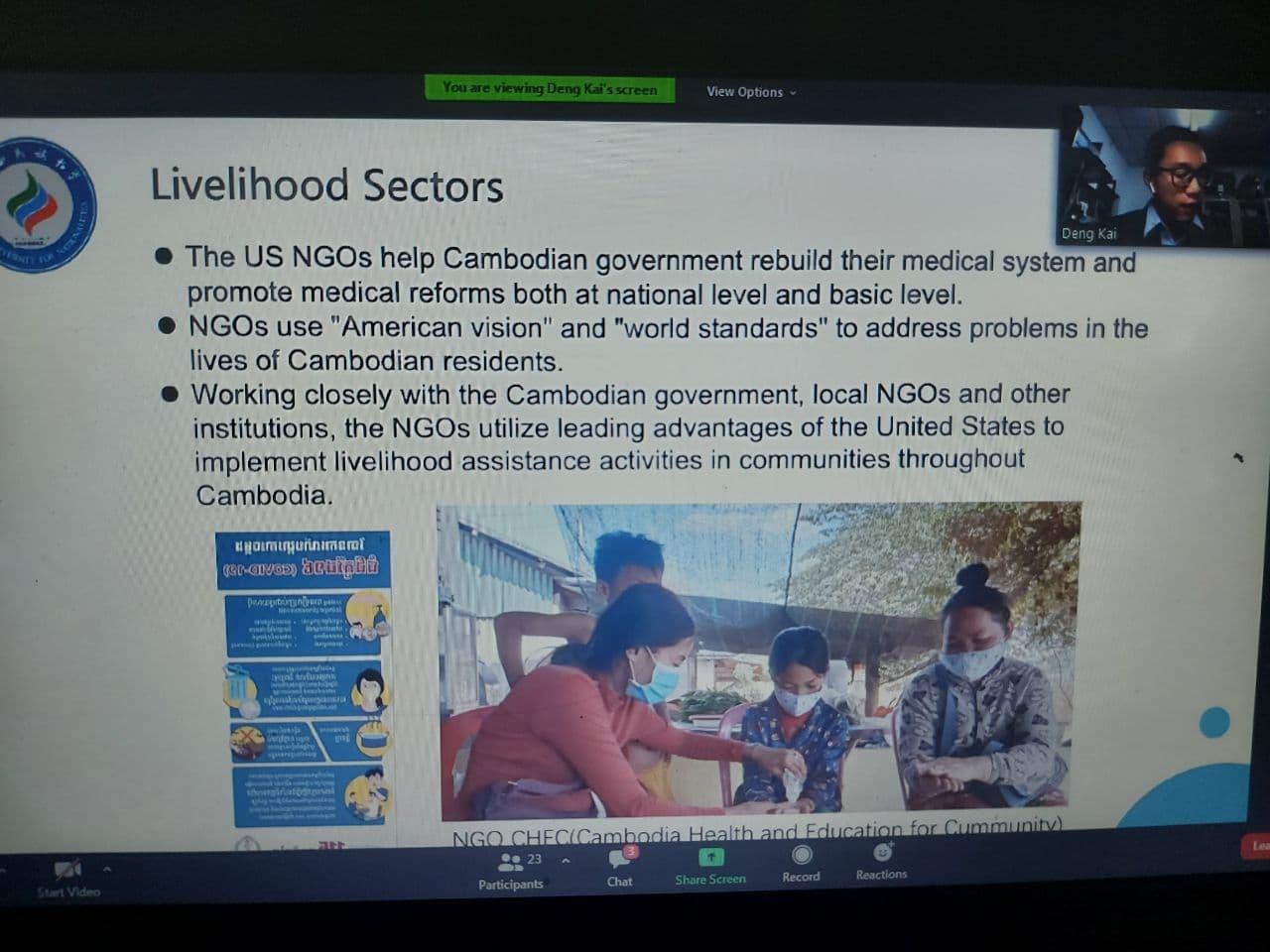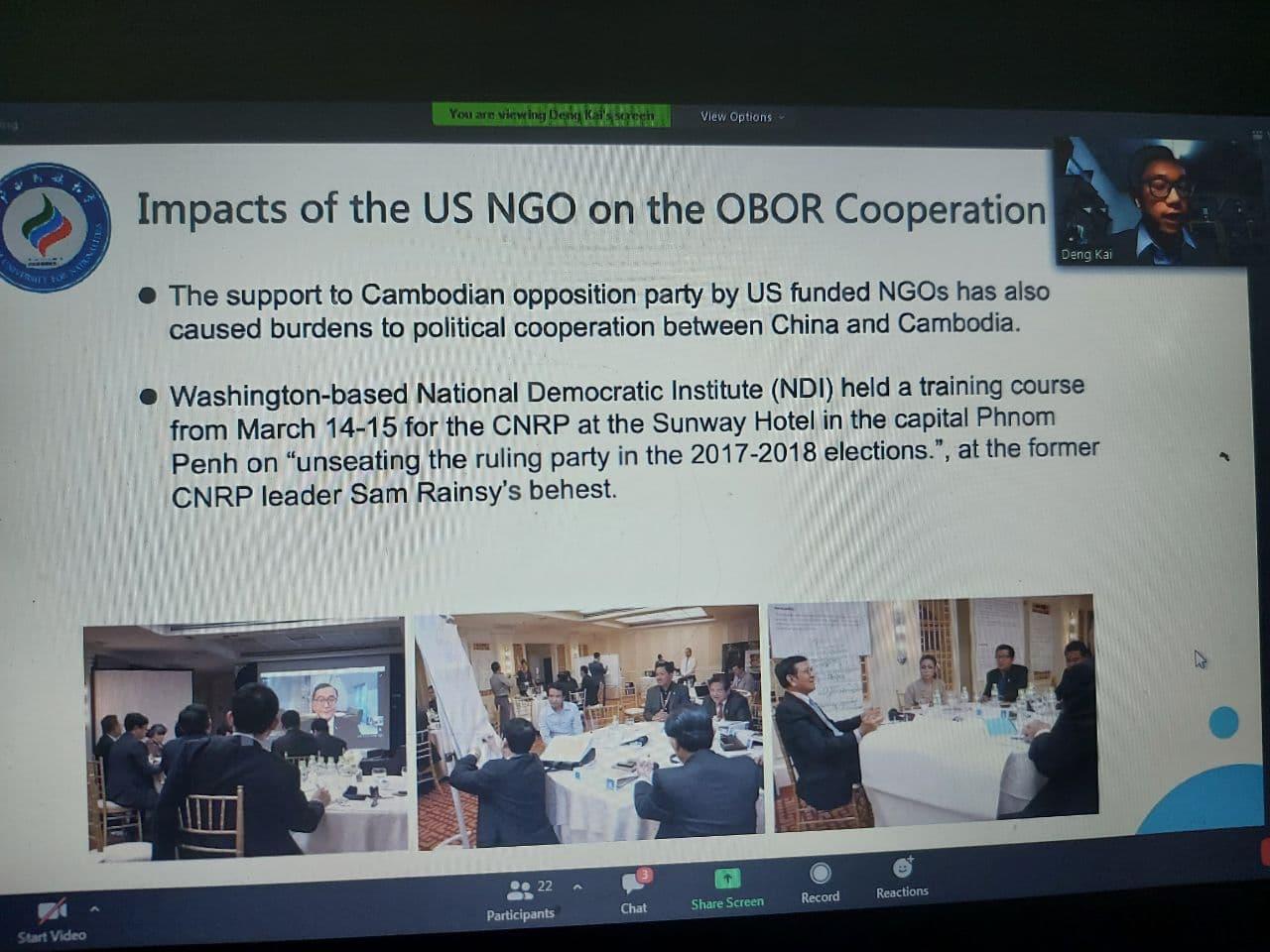PHNOM PENH, June 4 - Recently, an international webinar about Cambodia history was held in Cambodia, in which Cambodian and Chinese scholars discussed and agreed to establish a community of shared future for both countries.
Kao Muythang, advisor to the president of the National Assembly of Cambodia, said that the bilateral relations between China and Cambodia went smoothly during the pandemic. He pointed out that only China could help Cambodia overcome the difficulties. He expressed his appreciation to China for delivering vaccines to Cambodia in time.
Mr Kao said America’s accusation against China of its military presence in Cambodia is baseless. On the contrary, it is America that deeply violates the human rights of Cambodian people. He stressed that Cambodia is a traditionally agricultural country and many people are still suffering from poverty. “Getting full ”(eliminating hunger) is the top human right. Cambodia wishes to learn from China how to improve the living standard of people.
Chea Munyrith, a well-known writer and president of Cambodian Chinese Evolution Researcher Association, is in favor of Kao Muythang. He said that to guarantee the food supply in Cambodia is the most challenging issue concerning Cambodian people, while increasing Chinese investment will definitely benefit Cambodian people. He stressed that premier Hun Sen’s visit to China on February 5, 2020 during the critical period when China was combating the pandemic, released a signal to the world that China and Cambodia share good friendship and both will join hands to fight the coronavirus.
Yang Baoyun, a professor from Thammasat University and Peking University said that Cambodia historically implemented a foreign policy of peace, neutrality and non-alignment under the leadership of Sihanouk during the cold war, and made a great contribution to the non-alignment movement and Geneva conference in 1960 on Laos issue. However, Cambodia encountered the boycott of US led western countries, which made the country involved into Vietnam war, turning Cambodia from a peaceful heaven into a war field. He pointed out that different classes share different political attitudes towards Colonist France and the warlord America in Cambodia.
Deng Kai, dean of Cambodian language department at South-East Asian language and culture faculty of GuangXi University for Nationalities, focused on how NGOs undermine the foundation of Sino-Cambodia relations with the influence of American value. He said that the US funded NGOs have developed fast since secretary Hilary time, with numbers rising from under ten to thousands. The National Endowment of Democracy used to interfere into the national election of Cambodia. It's said that many NGOs are now blocking the development of Sino-Cambodian relations. He suggested that China should encourage Chinese NGOs to go abroad. Seng Marina, standing member the Association of Cambodian Students in China, MFAIC said at the same time that many NGOs are regarded as anti-government forces with political and finance backgrounds. As a representative of younger generation, she claimed that China mode for development is more suitable for Cambodia.
At the end of the webinar, Zhang Zhengyin, a professor from the Law School of Xiangnan University said that the historic wounds left by America still remain. Regarding laws, an agreement was made to study relevant laws and regulations concerning war claims and to improve laws for the evidence chains of war damage. He stressed that civil organizations at different levels should be founded for compensation claims from America, and a fixed platform should be set up to make evidence available to others. The country doesn't see a promising future until we realize the real crisis in Cambodia caused by America.
It's worth saying that US deputy secretary of state Sherman paid a visit to Cambodia on June 1st . It it reported that Sherman expressed a “deep concern” for so-called China’s “military presence” in Cambodia and demand ed Cambodia to keep the so-called “independent, balanced foreign policy”. However, the webinar participants believe that the United States did bring great harm to Cambodian people in the past.
